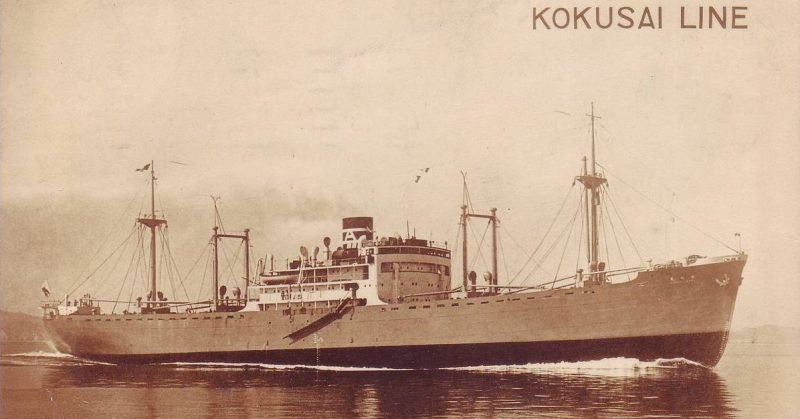Three sunken Japanese cargo transporters that historians believed were the Kokusei Maru, Higane Maru and Hiyori Maru, have been destroyed in what appears to be an illegal salvaging operation.
The three ships were sunk off the coast of Borneo during World War II by the US and would have still contained the remains of dozens of crewmen.
Known as the Usukan wrecks, they were a favorite spot for recreational divers due to their pristine condition and varied coral and marine life. The three wrecks were all located within a kilometer of each other.
This is the latest in a string of underwater looting of Australian, American, British, Dutch and Japanese wrecks in the seas of Southeast Asia. There has been outrage from veterans and governments who want the wrecks preserved as underwater grave sites.
Monica Chin said that she was contacted by local fishermen who saw a large Chinese vessel using a crane to remove the metal from the ships. They provided video and photographic evidence of the ship in question, known as a “grab dredger.”
Chin organized a group of divers to investigate the three sites. She said that they were in “beautiful condition” last year.
When the divers returned with pictures of the current state of the sites, “It broke my heart,” she said.
Locally, the three wrecks are referred to as Rice Bowl Wreck, due to its cargo, Upside Down Wreck, and Usukan Wreck.
Mark Hedger works as a dive instructor. He used to take customers to dive the wreck sites. In a written statement, he said that the Usukan and Upside Down wrecks are “98% and 99% gone” and the Rice Bowl Wreck is a “heap of metal piled up into a ball.”
Chin contacted authorities who said that the work had been authorized as research by the archaeological unit of the Universiti Malaysia Sabah (UMS).
The vice-chancellor of the university stated that the three wrecks contained toxic materials which were harming the environment. This is disputed by local divers.
After receiving complaints from divers and residents, the university issued a withdrawal letter to the company they commissioned to salvage the wrecks.
Under international law, shipwrecks have sovereign immunity. They are the property of their nations. It is illegal to destroy the wrecks without permission from the country, in this case Japan.
A fisherman from Malaysia complained to authorities that he was ordered to leave the area by the Chinese crew. Authorities searched the Chinese ship and found parts from the wreck, including an anchor.
Japan has not officially identified the wrecks or claimed them.
The Japanese foreign ministry was unaware of the wrecks and redirected questions to the health ministry which handles the remains of Japanese troops.
The health ministry stated that they expected underwater war graves to be left as they are. They consider it the responsibility of the nation where the ships are located to protect them.
Japan has been making an effort to repatriate the remains of their deceased soldiers. Slowing the effort, is the vast range those remains are located in, from Russia to Iwo Jima and Okinawa.
Dozens of historical wrecks in the South China Sea are being illegally salvaged, according to veterans and marine historians.
Crews that imitate fishermen are raiding the waters of Indonesia, Singapore and Malaysia to find steel, aluminum and brass.
Propellers are frequently the first things stolen as many were made of phosphor bronze scrap metal worth more than $2,500 a ton. WWII wrecks are also valued for their low-background steel which is rare.
Three British ships and a US submarine that sank in the Java Sea during WWII were salvaged for metal last year. The British Ministry of Defense condemned the activity and the disturbance of any wreck with human remains. They request the Indonesian authorities to take the appropriate action, The Guardian reported.
Three Dutch shipwrecks in the Java Sea have also disappeared leading to the Netherlands defense ministry to begin an investigation.
